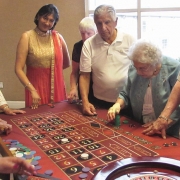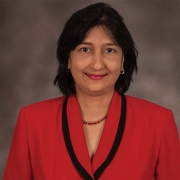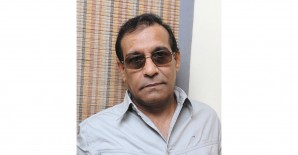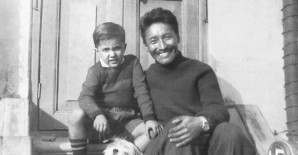
Columns
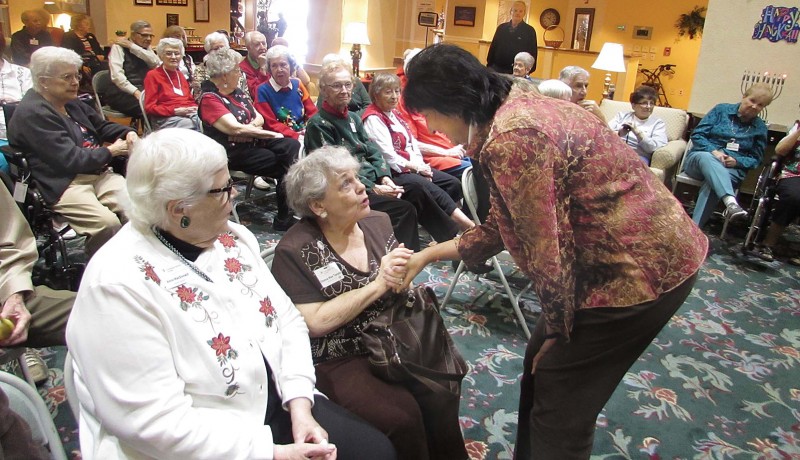
In her remarkable journey from Gujarat to Arizona, Bhakti Gosalia has made a mark in senior care with her magic and wisdom, writes international columnist Jack York
I’ve been given a lot of leeway as I write these pieces for Harmony-Celebrate Age, so every once in a while I’ll introduce some odd phrases and concepts from the US and we’ll see how they translate. Today’s phrase is a saying that may or may not be relevant in India—but it’s certainly relevant with the person featured here. The catchphrase is ‘Do you walk the talk?’ And a person who lives that every day is Bhakti Gosalia, a remarkable woman raised in Gujarat who spreads her magic and wisdom in Arizona, the south-western part of the United States.
The phrase ‘walking the talk’ is actually a simple concept. People often talk about who they are, what they do, what impact they have. However, at least in the US, often times the reality of how they present themselves is in stark contrast to how they truly act. If you walk the talk, it simply means your actions match your words. Bhakti’s do.
Bhakti has plenty to say about healthcare, compassionate care, making the residents she serves feel at home in her community. She works as the executive director at Grandview Terrace, a community in the Sun Health family, close to Phoenix, Arizona. She has her own sense of gravitas. She looks you in the eye when you talk to her, she listens; she is respectful of every person she interacts with. When she talks to an elder in a wheelchair, she bends over to look at them from their level. Her passion runs deep; you can see it in her eyes when she talks to you about ageing, about culture, about dementia, about motivation.
Bhakti’s own journey to the US is also remarkable; she was born, raised and educated in India. Her parents are from the state of Gujarat where she was born. Soon after her birth, her parents chose to move to Mumbai to provide advanced educational opportunities for her and her siblings. She grew up in Mumbai and spent summer vacations camping in Gujarat on fields owned by her maternal grandma where she enjoyed fresh tropical fruits and vegetables!
She immigrated to the US after earning her first master’s degree in social work in 1985. She moved to Arizona in 1987 to be with her family who had moved here from India a few years before. Her upbringing had a dramatic impact on her journey. “The Indian culture is very respectful of our elders and children, as a rule, expect and plan to be actively involved with their parents as they age; so, a career in senior care is a natural fit for me,” elaborates Bhakti. “My first job was in the acute care setting at a Sun Health hospital that specialised in geriatric care. This social work position afforded the opportunity to interact daily with geriatric patients and the acute care setting afforded me the opportunity to envision changes that could have a dramatic impact toward a different outcome for our patients.”
Later, she earned her second master’s degree in health services administration. This led to new opportunities to venture into post-acute care as the administrator at the hospital’s rehab facility. Her background in social work gave her the empathy, compassion and drive to help older adults while her administrative background gave her the skill set to navigate the constantly evolving regulatory requirements.
Bhakti has always worked from her heart and her work has earned plenty of accolades. Her community won the Environmental Design Award for their memory support suites at the 2015 LeadingAge AZ Annual Conference. That same year she was presented with the LeadingAge AZ Award of Honour. In 2016, they won the Best Practice Award from LeadingAge AZ and she was able to share these best practices in her presentation on the topic, ‘Be the Difference by Building Relationships in Memory Support’. She also was recently selected as a LeadingAge academy fellow.
These accolades are well deserved of course. But in my opinion, what is remarkable about Bhakti is the sense you get when you walk into her community. That’s where the ‘walk the talk’ comes into play. She knows the names of all the residents, all the staff; she cares about them, asks questions about their lives. If she sees a scrap of paper on the floor, she will pick it up; if she sees a door open that is not supposed to be, she will close it; if she sees a resident is distressed in the hallway, she will stop and talk to that person. I have seen this in person whenever I visit her—it’s remarkable. You can’t fake it.
What’s more, though she now lives thousands of miles from India, the magical country stays in her heart and spirit. There are things she misses, such as her favourite dish, dosa. She misses eating authentic regional Indian cuisine in some of her favourite cities like Mumbai. She stays immersed in Indian culture in Arizona. She grows curry leaves, moringa, cilantro and mint in her backyard garden so she can enjoy these authentic flavours in her home cooking. Besides cooking, she finds other ways to stay connected to her roots. As she explains, “There is a thriving Indian culture in Arizona that revolves around our worship centres. We gather weekly for worship and community events. In many ways, it feels like India—just a little hotter! I feel I have truly been blessed to fully experience the best of both worlds!”
From an ageing standpoint, she draws insightful distinctions between her current life in the US and her upbringing in India. “Life in the US has afforded me the opportunity to return to school and earn my second master’s degree,” she shares. “Coupling my formal education with work experience, I was able to discover my passion—working with seniors.” She continues, drawing out the contrasts between the countries: “Ageism is still alive and well in the US. Many say it is the last socially acceptable form of discrimination. I think in India, we still value our elderly and our culture encourages us to seek their wisdom and advice. However, the US has developed a sophisticated infrastructure of supportive services and senior housing services to provide support at each transition in care, from independent living to assisted living to skilled or memory support services; in effect, inventing the wheel. In India, at least until recently, it was common for multiple generations to dwell together. There seems to be a shift in Indian culture to transition to single-family lifestyles. This move will displace a large number of seniors without the needed infrastructure for a senior housing model and transitional supportive care services in place. India will be playing catch up for the next couple of decades, but this may afford the opportunity to ‘invent a better wheel’.”
Through all of her sophisticated accomplishments in healthcare, Bhakti’s greatest accomplishments, as she sees them, transcend culture. She is most pleased with her life as it revolves around her family, friends, and spiritual pursuits.
Thank you, Bhakti, for the work you do. You make our country here in the US a bit more compassionate, a bit more engaged, a bit more relevant. You do it with style, dignity and class. You have been able to make your mark in two different countries and cultures, never stopping to pat yourself on the back for the great work you do. So we’ll do it for you in these words: Take a second, slow down just for a few minutes, and give yourself a much deserved moment of reflection. You have made a difference not just in one culture but two; and as you are humbly proud to convey, you think your best work is yet to come. A lot of people from both sides of the planet can’t wait to see it happen.
York is co-founder of It’s Never 2 Late ® (iN2L), an American company dedicated to helping older adults realise the full benefits of today’s technology
Photos courtesy: Bhakti Gosalia Featured in Harmony — Celebrate Age Magazine September 2017
you may also like to read
-
Mental workout
Mukul Sharma tells you how to keep those grey cells ticking Everyone will ultimately lose his or her brain….
-
Helpline
Dr Harshbir Rana answers your queries on personal and social issues related to ageing, elder care and intergenerational relationships ….
-
Off the cuff
Raju Mukherji pays tribute to his first hero, Tenzing Norgay, an exemplary mountaineer Darjeeling, 1955. Dr ‘Pahari’ Guha Mazumdar….
-
Yoga RX
Shameem Akthar shows ways to control debilitating ankle pain through regular practice Ankle pain is so common and prevalent….



